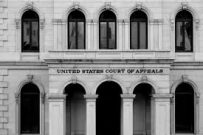The Indispensability of Judicial Dissent
Justice Ruth Bader Ginsburg recently noted that she sometimes refrained from dissenting in the cases she regarded as less important like tax disputes and saved her dissents for the big ones like those on gender equality. Unlike some of her other obviously injudicious remarks, her opinion on this matter may be widely shared among judges. When I asked a friend who had become a federal appellate judge what most surprised him, he said it was norm among his colleagues to suppress written dissent in all but important cases. He was troubled by the practice but felt pressure to conform.
My friend is right to feel uneasy. It is a bad practice. First, it smacks of judicial hubris. It is often difficult to be sure how important a decision will be in the long run.. The fabric of the law is complex. For instance, the development of minor exceptions to a doctrine can eventually lead to pressure for its overthrow. Even cases that are minor to Supreme Court justices can have large ripple effects. Circuit court precedent is so decentralized that its future connections it will make are hard to predict.
Moreover, the law is not just about reaching a decision but providing the right reasons for that decision. A dissent puts pressure on the majority to provide persuasive and compelling analysis on what is likely a hard question. And sometimes dissents can change outcomes: on reading a written rebuttal of their arguments members of a majority have been known to change their minds.
Finally, choosing when to dissent makes a matter of judicial discretion what should be one of obligation. A judge is paid to provide his honest view of what the law is, not whether a case is important enough for him to express a view. Unless a judge enjoys discretion by operation of law, as the Supreme Court does in its certiorari practice, he should follow what he believes to be the law without exercising discretion. That means dissenting whenever your view of the law conflicts with the majority.
There is one important implication of Judge Ginsburg’s remarks for positive law. While many justices and commentators point to its many unanimous decisions as evidence that legal consensus often reigns on the Supreme Court, Ginsburg makes clear that some of this unanimity is faux agreement. Indeed, a norm against dissenting in minor cases at the Supreme Court probably gains some strength from the benefits of such unanimity for the image of the Court. But the rule of law is best served not by a Court focused on burnishing its image, but on improving its work product. Dissents help make the reason of the law the best it can be.


